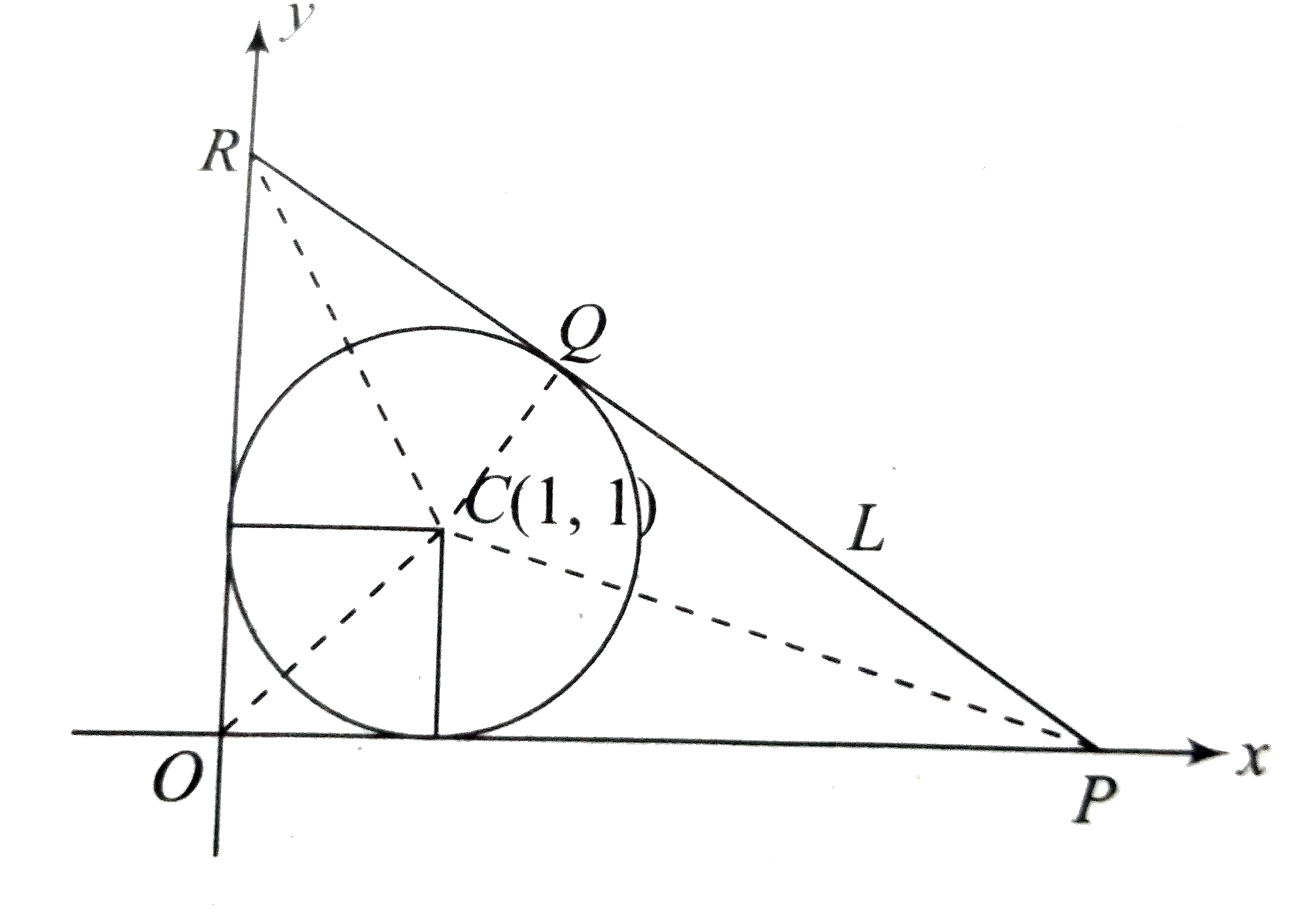F a=cos(2π/7)+isin(2π/7) , then find the quadratic equation whose roots are α=a+a2+a4andβ=a3+a5+a7 .Solution in Bengali
a=cos(2π/7)+isin(2π/7), which is one of the 7th roots of unity.
Therefore, seventh roots of units are 1,a,a2,a3,a4,a5 and a6.
Also, a7=1 ...(1)
Sum of the roots =1+a+a2+a3+a4+a5+a6=0
∴ S=α+β=(a+a2+a4)+(a3+a5+a6)=−1
Product of roots,
P=αβ=(a+a2+a4)(a3+a5+a6)
=a4+a6+a7+a5+a7+a8+a7+a9+a10
=a4+a6+a+a5+1+a+1+a2+a3 [from Eq. (1)]
=3+(a+a2+a3+a4+a5+a6)
=3−1=2
Therefore, required equation is : x2−Sx+P=0 or x2+x+2=0
Topper's Solved these Questions
- COMPLEX NUMBERSBOOK - CENGAGE PUBLICATIONCHAPTER - COMPLEX NUMBERSEXERCISE - SLOVED EXAMPLES
15 Videos
- COMPLEX NUMBERSBOOK - CENGAGE PUBLICATIONCHAPTER - COMPLEX NUMBERSEXERCISE - EXERCISE3.1
4 Videos
- COMPLEX NUMBERSBOOK - CENGAGE PUBLICATIONCHAPTER - COMPLEX NUMBERSEXERCISE - Comprehension
11 Videos
- CIRCLESBOOK - CENGAGE PUBLICATIONCHAPTER - CIRCLESEXERCISE - Comprehension Type
8 Videos
- CONIC SECTIONSBOOK - CENGAGE PUBLICATIONCHAPTER - CONIC SECTIONSEXERCISE - All Questions
102 Videos
Similar Questions
ifωandω2 are the nonreal cube roots of unity and [1/(a+ω)]+[1/(b+ω)]+[1/(c+ω)]=2ω2 and [1/(a+ω)2]+[1/(b+ω)2]+[1/(c+ω)2]=2ω , then find the value of [1/(a+1)]+[1/(b+1)]+[1/(c+1)].
View SolutionIs the following computation correct? If not give the correct computation: [√(−2).√(−3)]=√(−2).−3=√6
View SolutionConsider the region R in the Argand plane described by the complex number. Z satisfying the inequalities |Z−2|≤|Z−4|, |Z−3|≤|Z+3|, |Z−i|≤|Z−3i|, |Z+i|≤|Z+3i|
Answer the followin questions :
Maximum of |Z1−Z2| given that Z1, Z2 are any two complex numbers lying in the region R is
View Solution
In the diagram as shown, a circle is drawn with centre C(1,1) and radius 1 and a line L. The line L is tangent to the circle at Q. Further L meets the y-axis at R and the x-axis at P in such a way that the angle OPQ equals θ where 0<θ<π2.
Coordinate of Q is
View SolutionGiven that A(1,1) and B(2,−3) are two points and D is a point on AB produced such that AD=3AB. Find the coordinates of D.
View SolutionIf [(cos (2pi)/7,-sin (2pi)/7),(sin (2pi)/7,cos (2pi)/7)]^k=[(1,0),(0,1)], then the least positive integral value of k, is
View SolutionIF a=cos(2π7)+isin(2π7),α=a+a2+a4andβ=a3+a5+a6 then α,β are the roots of the equation
View SolutionIf α=cos(2π)7+isin(2π)7 then a quadratic equation whose roots are (α+α2+α4) and (α3+α5+α6) is
View SolutionIf α=cos(2π7)+isin(2π7) then a quadratic equation whose roots are (α+α2+α4) and (α3+α5+α6)
View Solutionयदि a=cos(2π/7)+isin(2π/7) , तब वह वर्ग जिसके मूल α=a+a2+a4 तथा β=a3+a5+a6 हैं, होगा
View SolutionAssertion (A) : If α=cos(2π7)+isin(2π7),p=α+α2+α4,q=α3+α5+α6 then the equation whose roots are p and q is x2+x+2=0
Reason (R) : If α is a roots of z7=1 then 1+α+α2+…...+α6=0
View SolutionIf a=cos(2π/7)+isin(2π/7), then find the quadratic equation whose roots are α=a+a2+a4and β=a3+a5+a6.
View SolutionIf ⎡⎣cos 2π7−sin 2π7sin 2π7cos 2π7⎤⎦k=[1001], then the least positive integral value of k, is
View SolutionF a=cos(2π/7)+isin(2π/7) , then find the quadratic equation whose roots are α=a+a2+a4andβ=a3+a5+a7 .
View SolutionIf α=cos(2π5)+isin(2π5) , then find the value of α+α2+α3+α4
View SolutionIf a=cos(2π7)+isin(2π7),α=a+a2+a4,andβ=a3+a5+a6 then α,β are the roots of the equation
View Solution
